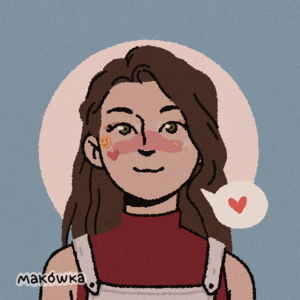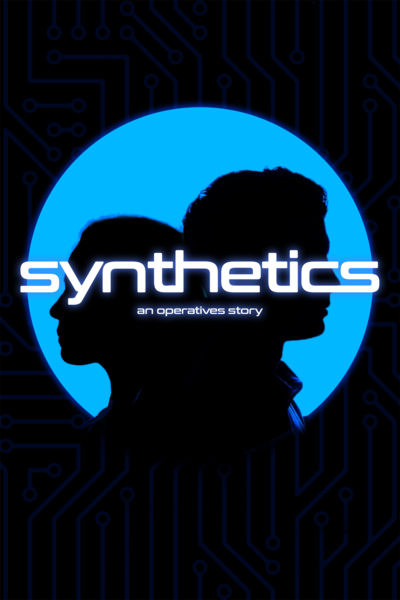Adya’s eyes trace the skyline as if it’ll all disappear if she removes her gaze. She’s lived in every type of place-- city, suburb, countryside-- but Los Angeles is a long way from Kolkata. She’s already been here for two weeks but continues to discover new and interesting things about the landscape with each glance. The pollution and constant construction hardly matters much when this is a chance to start over. For almost two years she’d been under the watchful eyes of dozens of doctors barking orders at her. Don’t run too fast. Don’t go too far. Be back in time for physical therapy. Voice therapy. Art therapy. Regular therapy. Two years of learning how to live again. And she was finally going to do something with it all.
Of course, her decision to move to America wasn’t without objection. Adya could’ve easily started her adult life in her hometown and she’d be given the same amount of freedom. She’d live like anyone else, save for the monthly diagnostics check she’d have to undergo to make sure all the bells and whistles that went into her system were still operational. However, finding a reason to just pick up where her life left off as if nothing ever happened? It felt impossible.
After graduating secondary school early, all she wanted was a quiet, easy life with a 9-5 dayjob and a rescue dog. But the girl who blacked out when the landmine went off is not the same woman who became the first human conscience in a bionic body.
She still wants a rescue dog, though. But that will have to wait.
A soft chuckle comes from the driver's seat. “Honey, your neck is gonna get stiff if you lean like that,” the woman says. “I know you’re not made of skin and bone, but that can still happen, you know.”
Since her parents didn’t have the luxury of staying with Adya 24/7, Dr. Elora Alvarado filled the space they left to the best of her ability. Whatever she imagined it was like for Adya to have her entire world flipped upside down, it was at least three times worse. Her patience with Adya did not go unnoticed; hours of therapy merely became exhausting instead of agonizing. When she first proposed the idea of coming to America and training to become an agent, Elora was the only one who never hesitated to say yes.
Before Elora was on the team of bionicists in charge of looking after Adya, she worked for the Goddard Institute of Cybernetics. Evidently, their “top notch” agency wasn’t the only reason why it was Adya’s first choice.
She settles comfortably back into the passenger seat and keeps an eye plastered out the window. Elora drums her fingers on the steering wheel. “Now, I know you’re mostly used to the general… ambiance of the city, but the acclimation process will still take a little while. Your audio interface isn’t used to things like shouting within a building, gunshots, all the stuff that comes with a combat-based job. If it startles you, feel free to sit down and--”
“Ears,” Adya interrupts. “Just call them my ears, please.”
“Right. Sorry. But don’t hesitate to take breaks if things get overwhelming. No one is expecting you to be up and at ‘em right away.” She rubs Adya’s shoulder and offers her a quick smile. They merge off the freeway and take a right, heading down a road that seems endless from this distance.
“I’m sure you’re glad to be home, too,” she says. “After spending two years in a foreign country, babysitting me.”
“If I wanted to babysit, I would’ve stayed a college professor. You are leagues above that, dear. And not just because you’re--”
“A robot?”
Elora shoves her arm playfully. She despises when Adya refers to herself as anything besides human. “An early high school graduate.”
As they drive further down the street, the buildings get shorter, growing out instead of up. Less skyscrapers, more wide, boxy buildings that house anything from storage units to supermarkets to restaurants. The trees that hang over the road cast shadows onto her arms through the car window. She admires the way the light bounces off her synthetic skin, even if it’s obvious that the mechanics beneath it aren’t made of muscle and bone. Her fingers curl into a tight fist, relax, and repeat. The leafy shadows crawl up her arms, over the seams that run from her wrist up to her shoulder, and reach the smooth, seamless skin of her neck and face.
Adya turns a thought over and almost doesn’t want to know the answer. “I assume that me starting this path isn’t the end of the road for interviews and all that stuff?”
She sighs. “It most likely means even more. You’re the biggest breakthrough in bionics, and now you’re working for the American Cybernetics Association. That tends to get people talking.” Gee, no pressure or anything. “I don’t blame them for wanting to know more, and I’d rather give them the truth than leave them to stir up misinformation. But I’ve asked that Goddard deny any requests for questions for at least a few more weeks. We can resume whenever you’re comfortable.”
Truthfully, Adya doesn’t mind it all that much. The media has been good about giving her some space. She’s happy to give people the truth, until the truth feels like spiders crawling up her skin as the interviewer waits for an answer to a horrendously invasive question. A human brain mapped onto 1’s and 0’s, and all they want to know is the minutia of her romantic life. I don’t know, dipshit! I’m nineteen! She wants to say, but she’d rather take the hit than cause a scene on live television.
The turning lane gives way to a massive parking lot in front of an even bigger building. It’s far from the boxy shape of the structures they’ve been driving past; while still geometric, the exterior is full of jutting angles on each level. Above the entrance, the building pushes in, making room for a balcony that wraps around at least half the second floor. Sleek, yet not sterile. After two years in and out of hospitals and labs, it’s a sight for sore eyes to Adya.
Plastered to the front of the building is the logo she’s grown familiar with: an outstretched bionic hand. Elora pulls into a reserved parking spot near the entrance and waves to the two men waiting outside the building. One is dressed in a gray lab coat and glasses that are pushed up onto his head of short, red hair. The other wears a blazer and a striped tie. Elora hugs the former and shakes the hand of the latter; these are clearly two very different relationships with two very different people.
“Adya, this is Dr. Leighton Beck, one of my former colleagues. He’s currently the head bionicist at Goddard.”
“Please, just Leighton. I’m the only doctor you’ll ever meet who doesn’t care whether or not you call him one,” he says, shaking Adya’s hand. He’s definitely less intimidating than the other man, but it might just be the lab coat and the glasses shoved up onto his messy hair.
“And this is Cassian Armstrong, president of the American Cybernetics Association,” Elora continues. President Armstrong offers a hand, which Adya takes-- but not without some apprehension. She can feel the nerves starting to kick in.
“The ACA is lucky to have you, Miss Prisham. Or should I say, Cadet Prisham?” he says with an ear-to-ear grin. “You have nothing to worry about. I have a feeling you’ll fit right in with the other agents here, but don’t be afraid to ask for help.”
She’s a bit shorter than him, but Adya gets the impression that his looking down on her isn’t by coincidence. First words like “don’t be afraid to ask for help” certainly don’t help, either.
“Let’s not waste any time, shall we?” Leighton says. The automatic front door is already open behind him.
After a brief tour, Adya concludes that she’s going to like this facility far better than any of the previous ones she’s stayed in. In Kolkata, things always felt too clean-- too perfect. Luckily, only the research level of Goddard feels that way. After growing up in a bedroom full of decorations and books and trinkets, living in a room that was mostly white walls and wiry carpet made acclimation to her new body all the more difficult. Leighton told her that she can decorate her living quarters however she wants, which already makes her eager to get settled in. As they wander through the halls, Elora makes the occasional comment about a change that’s been made since she left. She seems to know every corner of this facility, front to back, left to right, upside-down and rightside-up.
“Alright, I think that’s everything important,” Leighton says once they’ve circled back to the first floor. “Again, you’re welcome to roam wherever you have clearance, Adya. I have no qualms with you exploring the building when you’re not busy. It takes a long time to get used to-- even I still get lost.”
President Armstrong shakes Adya’s hand one more time. Their meeting was so brief, she wonders why he came all this way. She’s almost glad to see him disappear down the hallway, as he takes the looming tension with him. The two doctors relax, too.
They come up on a metal door with a squeaky handle. Instantly, the air in this room is thinner and cooler. Adya wishes she had the ability to breathe it in; it feels crisp against her fingertips. The concrete walls are at least thirty feet tall and the open garage door lets the spring air swirl into the facility. The humming of the swamp coolers bothers her at first, but she tunes it out within a few minutes.
A handful of agents mill across the room. Some are dressed in tank tops and shorts, others are adorned head-to-toe in black, padded gear as they run out of the back door and file into vans. Adya expects her bright red t-shirt and gray leggings to draw a handful of eyes, but for once, hardly anyone bats an eye at her presence.
“Well, I’ll be damned!” a young man shouts from halfway across the room. “Elora Alvarado. You look worse for wear.”
Adya jumps a little, taking a half-step behind Elora. She laughs with her whole body and embraces him with a tight grip. “That’s doctor to you, Nathaniel.”
“Nathaniel? That’s Agent Anastasio to you, doctor.”
When he lets go, he notices the body behind Elora and the way she keeps her gaze locked onto the far wall, over his shoulder. “I’m sorry if I startled you,” he says in a softer tone. “Agent Nathaniel Anastasio. But you knew that already. Nate is fine.”
“Adya,” she says. He knows your name already. Everyone does. It’s still hard to get used to. She offers Nate a hand to shake, but he latches onto her forearm and gives it a gentle squeeze. She chuckles.
“You won’t have to shake many hands while you’re here, don’t worry.”
When she looks around, Leighton has already disappeared and Elora is about to join him. “Call me if you need anything,” she says, “but Nate is one of our best. I looked after him when he first showed up, so you can trust him.” Elora wraps Adya in a sweet embrace and plants a quick kiss on the top of her head. “See you later, Cadet.”
The door shuts with a squeak of its handle and the latching of its lock. Adya notices the two sticks poking out from behind Nate’s back and behind his short-long hair. With ease, he unsheathes the batons and gives them a quick, elegant spin. “It’s not common, but a handful of us specialize in a weapon,” he explains. “Nonlethal, of course. Like everything we do. Rivera used to be a softball player, so she’s good with anything that needs to be thrown. Shock devices, detonables, trackers-- anything.”
A short woman in a black tee and cargo pants peers around the corner. Her shiny, metal fingers rest down at her side after she waves to Adya. “Speaking of Rivera, hi! That’s me! Call me Val. Nate, are you done showing off to our guest or do I have to put you in another headlock to keep your ego in check?” she asks.
“Are you done embarrassing me in front of our guest or do I have to beat you in another fight to keep you out of my way?” Nate answers. Adya almost thinks he’s upset with her until she notices the dumb grin growing across his face.
Almost two years straight of lab coats and analyses and being surrounded by adults who are far too old for Adya to consider friends; even when she’s made of metal and machinery, she always felt like the bionicists were the most robotic people in the room. Now, she’s in a room filled with people who are young, bright, and too preoccupied to be pulled in her direction. She’s the youngest here, but not by much. The six cadets near the wall can’t be much older than twenty-one.
She still feels out of place, and it’s gonna be a long while before she finds where she belongs. But people who want to be around her-- not just because they’re running her diagnostics or training her motor skills-- it’s a start.











Comments (0)
See all